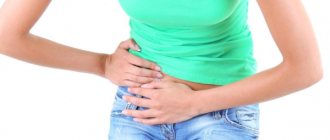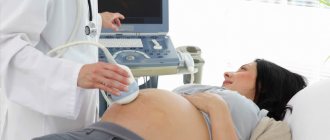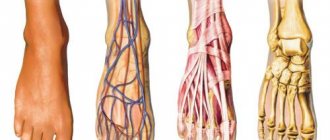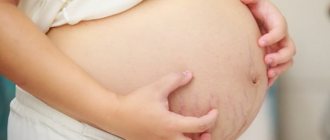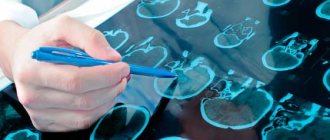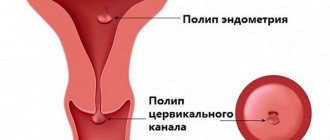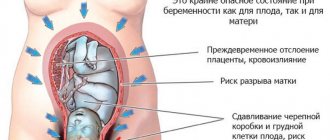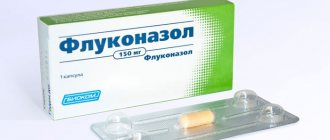Tingling in the mammary gland - causes
Sometimes women experience painful sensations in the chest.
They are commonly called mastalgia. In most cases, these sensations are characterized as tingling. Moreover, they can be either a sign of a serious illness or a normal phenomenon. Absolutely all causes can be divided into two categories: natural causes and signs of disease. It is important to understand in time why the tingling appeared, so as not to miss a serious illness.
Among natural causes, there are three main ones:
- Pregnancy
- Lactation
- Menses
There is a kind of rapid test for some pathological causes not related to breast diseases:
- Cardiovascular problems manifest themselves as tingling sensations on the skin on the left side. Very often, heart diseases are manifested by paresthesia, a feeling of skin numbness and goosebumps.
- Diseases of the spine (most often osteochondrosis of the cervical or thoracic region) are also accompanied by tingling in the mammary gland on the left side. If this symptom is accompanied by fatigue, problems with posture or headaches, it is necessary to treat the spine.
- A common cause of strange chest symptoms is intercostal neuralgia. It disguises itself as diseases of the mammary glands, heart or spine.
It is best to contact a specialist. Modern diagnostics make it possible to accurately determine the problem, and it will be possible to begin treatment immediately. It is important to treat breast diseases at an early stage, before complications arise.
If none of the above reasons apply, you should more carefully evaluate the symptoms and read about other possible diseases of the mammary glands. Let's look at the most common ones.
There are a number of natural conditions for the female body that lead to the occurrence of such a symptom. They do not require special treatment.
- Tingling in the mammary gland may occur during menstruation. This is a natural reaction of the body to changes in hormonal levels. Usually this symptom clearly manifests itself on the first day, along with other individual signs of the beginning of the cycle. Tingling may be accompanied by pain, swelling, and changes in emotional state. You should be concerned if the menstrual symptomatic complex interferes with normal life.
- Unpleasant sensations in the chest often accompany pregnancy. They may subside and reappear throughout the ten months. They are caused by the restructuring of the mammary glands to feed the baby. All you can do is ask your doctor about safe symptomatic therapy.
- Sometimes during lactation, nursing mothers notice that the mammary gland tingles. Discomfort may include pain, tenderness, and a feeling of pressure. Discomfort manifests itself most clearly in the first days of lactation. This is also normal: milk appears, changes occur in the mammary glands. As long as there is no sharp pain and lumps appear, there is nothing to worry about. But lumps and pain indicate the development of mastitis, for which you will have to consult a doctor for treatment.
These are the main natural causes of tingling. But there are also more dangerous conditions that need to be noticed in time in order to begin treatment at an early stage of the disease.
The main pathologies that lead to tingling in the chest:
- Mastitis and infectious diseases of the mammary glands.
- Thyroid diseases.
- Mastopathy.
- Diseases of the heart and blood vessels.
- Spinal diseases.
- Intercostal neuralgia.
- Tumors, both benign and malignant.
Let's consider the symptoms and consequences of possible diseases.
Mastitis
Most often develops in the first weeks of lactation. It can also appear in non-breastfeeding women and then has an infectious nature. The main cause of mastitis is errors during breastfeeding. If you don’t feed your baby often enough, latch on incorrectly, or don’t express milk, lumps will form in the breasts and pain will appear. The skin of the breast turns red, may tingle and lose sensitivity.
The main treatment for breastfeeding women is decanting, following the rules and order of feeding. If mastitis is detected in a woman who is not breastfeeding, a test is ordered to detect the infection and appropriate antibiotics are prescribed.
Mastitis usually affects only one breast - left or right. Prevention consists of proper feeding and regular expression of milk with a special device, as well as maintaining hygiene.
Mastopathy
It may also manifest itself as tingling. Other symptoms: pain when pressed, a lump that can be easily felt on palpation and has clear contours. Symptoms disappear and then reappear as the menstrual cycle progresses.
Pain appears several days before menstruation. At an early stage, the disease practically does not manifest itself, so mastopathy can only be diagnosed using ultrasound or mammography.
Diseases of the endocrine system are closely related to breast diseases. Hyper and hypothyroidism can cause discomfort. An endocrinological disease needs to be treated, but you will have to be monitored by a mammologist.
Heart diseases
Malfunctions of the heart very often manifest themselves as tingling of the skin. Discomfort usually occurs on the left side and does not affect the right breast.
If a tingling sensation appears in the center of the chest and turns into a burning sensation - this is a sign of a heart attack, you need to call an ambulance. If symptoms occur periodically, angina may be suspected.
If you suspect heart disease, it is important to contact a cardiologist and undergo an examination.
Neuralgia manifests itself with typical symptoms: tingling and sudden sharp pain. They are localized either in the right breast or in the left. Very often, patients with intercostal neuralgia mistake its manifestations for heart or chest disease. Only diagnostics will help determine the diagnosis. For examination, you need to contact a neurologist.
Tingling discomfort is typical for problems with the joints and spine. Unpleasant signs appear in the chest and back. Osteochondrosis is manifested by a number of symptoms, among which the main one is acute pain that is associated with stress or changes in weather. The pain radiates to the chest, but comes from the neck or thoracic spine.
Tumors
Benign and malignant breast tumors may also be accompanied by tingling. This symptom is usually not the most alarming: changes in the shape of the breast, discharge from the nipples, and changes in the skin may be observed.
The main danger is that with oncology, symptoms may be absent for a long time. When the tumor grows, pain and burning appear. To eliminate the disease, long-term treatment is needed. Tumors are best treated in the early stages of development. To prevent breast cancer, you need to know its main symptoms and carry out self-diagnosis on time.
Reasons and background
Absolutely all causes can be divided into two categories: natural causes and signs of disease. It is important to understand in time why the tingling appeared, so as not to miss a serious illness.
There is a kind of rapid test for some pathological causes not related to breast diseases:
- Cardiovascular problems manifest themselves as tingling sensations on the skin on the left side. Very often, heart diseases are manifested by paresthesia, a feeling of skin numbness and goosebumps.
- Diseases of the spine (most often osteochondrosis of the cervical or thoracic region) are also accompanied by tingling in the mammary gland on the left side. If this symptom is accompanied by fatigue, problems with posture or headaches, it is necessary to treat the spine.
- A common cause of strange chest symptoms is intercostal neuralgia. It disguises itself as diseases of the mammary glands, heart or spine.
It is best to contact a specialist. Modern diagnostics make it possible to accurately determine the problem, and it will be possible to begin treatment immediately. It is important to treat breast diseases at an early stage, before complications arise.
If none of the above reasons apply, you should more carefully evaluate the symptoms and read about other possible diseases of the mammary glands. Let's look at the most common ones.
Tingling in the mammary gland - causes
Incoming stabbing pains can be caused by problems in the mammary glands, heart problems, and diseases of the spine. To carry out the correct treatment, it is necessary to establish the correct diagnosis.
Women may feel a tingling sensation in their breasts at times. There can be many reasons for this, so it is necessary to consider each separately. Pregnant and breastfeeding women may often experience tingling sensations in their breasts. In pregnant women, milk ducts form and prepare for the feeding process, while in nursing mothers, these sensations can occur when milk moves through the duct and directly during the feeding process itself. There should be no alarm here.
Also, tingling in the chest can be caused due to heart problems, intercostal neuralgia, and problems with the spine. In order to understand the origin of the pain, you need to see a doctor. It is best to start with a therapist or mammologist. If the tingling does not depend on the phase of the menstrual cycle, go to a therapist; if pain occurs during certain periods, go to a mammologist.
We suggest you read: Is it possible to have arsenic in a tooth during pregnancy?
Mastopathy, lumps, lumps in the breast, or simply disorders of fat metabolism may be detected. In all cases, if the tingling in the mammary gland does not go away, it is necessary to carry out courses of treatment. You should also contact an endocrinologist and examine the thyroid gland, since this organ also produces sex hormones.
Folk remedies are also effective for diseases of the mammary glands. Probably the most popular is applying cabbage leaves to the chest at night for mastopathy. Also useful are chaga (birch mushroom), beet juice, burdock juice, and golden mustache. For formations (benign and malignant), hemlock tincture is used. This plant is very poisonous, so it should be taken with caution.
If the reason is something else, and most often it is the spine, it is necessary to work on it. You need to consult a neurologist, or better yet, a neurologist or vertebrologist, who will prescribe a course of treatment. To keep your spine healthy, you also need to monitor your posture, play sports, walk more and sit less in front of the TV and computer monitor.
Women of reproductive age most often complain about tingling breasts. This feeling can be caused by various reasons, so before prescribing treatment, specialists first determine what factors provoked its occurrence:
- Natural ones do not pose a threat to women.
- Pathological - indicate the presence of ailments and abnormalities in the body.
Based on this, further therapeutic measures are determined.
Let's look at the key features of the physiological and pathological reasons due to which a woman may be bothered by tingling in the chest area.
| Physiological factors | Features of the manifestation of unpleasant discomfort |
| Pregnancy | The feeling of the presence of a “needle” in the breast of expectant mothers is due to dramatic changes in its structure, which are preparing for feeding. A particularly pronounced tingling sensation is observed in the last stage of pregnancy. There is a proliferation of glandular tissue, which begins to compress the nerve endings, which provokes: - tingling; - tingling; - slight pain. |
| Lactation | If there is colitis in the breast tissue during breastfeeding, then this is due to the formation of colostrum, and then the influx of milk, as indicated by: - itching; - burning. |
| Premenstrual syndrome | 2-3 days before the onset of menstruation, hormonal surges occur, which causes: - swelling of the glands; - stabbing discomfort in the breast; - slight pain in the glands. Such symptoms are pronounced and are cyclical (occur monthly before the onset of menstruation and disappear before ovulation.) |
The above factors are not considered a deviation and in most cases, when they occur for a short time, do not require therapeutic correction.
Physiological and pathological provoking factors
The causes of tingling in the mammary gland can be of natural or pathological origin.
Natural factors
Breast tingling may occur during menstruation
Tingling in the chest area may occur during menstruation. This is due to changes in hormonal levels; the lower back and lower abdomen may also hurt.
Another natural provoking factor is pregnancy. This period is characterized by the restructuring of the mammary glands to produce milk for feeding the newborn.
Jerking pains and tingling sensations can also occur directly during lactation. At this time, especially when you become a mother for the first time, you need to carefully monitor your condition. Compression, severe tingling and sharp pain may indicate the formation of lumps, which can lead to the development of mastitis.
Factors of pathological origin
Infiltrative mastitis
There are a large number of diseases that cause tingling and chest pain. This is due to the high sensitivity of the mammary glands to hormonal changes. The most common pathological conditions:
- formation of benign and malignant formations;
- mastitis;
- neuralgia of the intercostal part;
- disorders of the thyroid gland;
- developmental pathologies or diseases of the cardiovascular system;
- mastopathy.
Women often have problems with the functioning of the thyroid gland, and its proper functioning plays an important role. This organ produces female sex hormones. If a woman experiences discomfort in the mammary glands, estrogen production is most likely impaired. To make sure of this, you need to contact a gynecologist, mammologist and endocrinologist, and also undergo all the necessary tests.
Manifestation of characteristic and alarming symptoms
Since stabbing pain in the mammary gland can appear for various reasons, you should know in what cases its occurrence may signal danger to the body.
As doctors emphasize, a serious symptom is manifested by a feeling of the presence of needles in the left area of the bust or its middle, which indicates the development of:
- Intercostal neuralgia.
- Spinal diseases.
- Hypertension.
- Thromboembolism of the pulmonary artery.
- Ischemia.
- Heart attack.
- VSD.
- Aneurysm (enlargement) of the aorta.
- Mitral valve prolapse.
In this case, it is necessary to focus on the following nuances:
- With heart defects, a tingling sensation begins on the left side or at the top of the chest.
- Burning pain in the middle or left side of the chest and the inability to take a deep breath - pre-infarction clinic or heart attack (you need to urgently call an ambulance).
- Paroxysmal painful discomfort from the bottom of the left chest indicates the presence of: angina pectoris, ischemia, irregular heart rhythm.
The presence of intercostal neuralgia does not pose a clear threat to a woman’s body, but it does cause significant discomfort, thereby worsening the quality of life. Pathology manifests itself due to pinched nerve endings.
Characteristic symptoms of neuralgia:
- Tingling can be either on the right or in the area of the left half of the chest.
- Manifestation of acute discomfort in different areas of the chest, including the side.
- The pain may intensify when turning or changing the posture of the body, taking a sharp breath and be accompanied by a cough.
It is worth noting that neuralgia can easily be confused with symptoms of heart disease, therefore, without clarifying the diagnosis, you should not take any heart medications, which is fraught with disastrous consequences.
If there is colitis on the right side of the chest, and discomfort is present all the time, then this indicates the presence of such diseases:
- Pleurisy.
- Flu.
- Tonsillitis.
- Bronchitis.
- Pneumonia.
- Oncology.
- Hernia.
- Osteochondrosis of the breast.
- Rachiocampsis.
Benign and malignant formations often occur for a long time without any symptoms or are manifested by minor discomfort. The development of cancer is accompanied by the manifestation of a characteristic clinical picture:
- The chest begins to hurt very much and stabbing inside it.
- Discharge from the nipples appears, having different colors and thickness.
- Rapid growth of the tumor.
What does tingling in the middle of the sternum mean:
- Ulcer of the stomach and duodenum.
- Dysfunction of the gallbladder.
- Endocrine problems.
- Osteochondrosis of the thoracic region.
- Spinal lesions (Bechterew's syndrome).
- Schmorl's hernia.
Pathologies of the spine and joints are characterized by stabbing discomfort that radiates to the sternum and back, for example, in the presence of osteochondrosis - a sharp pain that occurs after physical activity or a rapid change in weather. Although the tingling may radiate to the breast area, its main location is the neck or thoracic region of the spine.
Breastfeeding a baby is a normal natural process. For some women, lactation occurs painlessly, without causing any discomfort, while for others it occurs with difficulties due to the presence of certain disorders in the body.
Many breastfeeding women experience pain and tingling during breastfeeding. Unpleasant signs occur both in the nipples and throughout the mammary gland. As mentioned above, a slight tingling sensation is not considered a deviation from the norm, as it occurs due to the flow of milk. However, you should be wary if:
- The thickening and tingling occurred at the same time.
- Pathological fluid is released from the nipples.
- There is severe pain in the chest.
Such signs often indicate the development of:
- Tumors.
- Lactostasis.
- Cyst.
- Mastitis.
- Mastopathy.
- Neuralgia.
- Heart and vascular diseases.
- Disturbances in the endocrine system.
Lactostasis develops due to blockage of the milk ducts and is accompanied by fever, breast swelling and severe pain.
Mastitis most often appears in the first days of lactation and is difficult to cure. In addition to the stabbing sign, it is accompanied by:
- Formation of compactions.
- Swelling.
- Swelling.
- Hardening.
- Increased body temperature.
- Feeling of compression of the breast.
- Redness of the skin of the chest.
- Loss of breast sensation.
- Acute painful discomfort in one breast.
We suggest you read: Vomiting during pregnancy - main causes and treatment
To prevent milk stagnation, you need to learn how to properly attach your baby to the breast and avoid interruptions in feeding. The development of mastitis in a woman who is not breastfeeding is a sign of infection (can be eliminated by prescribing a course of antibiotics).
Mastopathy is manifested by the following symptoms:
- Seal.
- Burning.
- Tingling.
- Purulent discharge from the nipples.
- Severe pain when pressing on the gland.
Women with the onset of menopause may also experience periodic tingling in the breast, accompanied by aching pain. Such manifestations in medicine are considered the norm, however, given their constant nature, it is necessary to pay more attention to their presence. This is especially true for older women, since after the age of fifty, such clinical signs may indicate oncology.
However, for this age category of women, a tingling symptom does not always indicate cancer. There are other reasons for its occurrence:
- Hormonal surges. With the onset of menopause, the synthesis of certain hormones decreases, which causes hot flashes, breast pain and swelling, and the appearance of clear discharge from the nipples.
- Imbalance of fatty acids. An imbalance in their balance provokes swelling and hardening of the breast tissue, increased sensitivity of the nipples when touched and tingling.
- Psycho-emotional tension, stress. With the onset of menopause, the female body's susceptibility to stressful situations and psychological stress increases, which is manifested by tingling discomfort and other unpleasant sensations in the chest and other parts of the body.
When is breast pain normal during pregnancy?
Literally a few hours after conception, a kind of “restructuring” begins in a woman’s body. First of all, the hormonal background changes. As a result of these changes, nausea, heavy vaginal discharge, or previously unusual mood swings may appear. These are all early signs of pregnancy.
In addition, for many women, even before the delay, the nipple circles begin to darken, and the breasts themselves become more sensitive and even begin to hurt. This happens under the influence of hormones. It is with their help that the expectant mother’s breasts prepare for the important time of feeding the baby.
A woman may also observe other changes associated with her breasts:
- Slight swelling of the mammary glands - the breasts increase in size;
- Opening of the milk ducts - a small release of colostrum;
- Increased blood circulation - the venous network becomes visible through the skin.
However, such changes do not always occur in the first trimester. But if your breasts hurt some time after unprotected intercourse, this could be a sign of pregnancy. This happens especially often to women expecting their first child. There is no need to worry about pain. Most often, the discomfort disappears by the end of the 12th week.
But in rare cases, pain may persist throughout pregnancy. In this situation, care must be taken to ensure that it causes a minimum of inconvenience. We’ll talk about how to do this later, but now we’ll look at when your breasts still hurt during pregnancy and this is not a cause for concern.
Causes of numbness during pregnancy
Most often, this symptom begins to appear at the end of the second and throughout the third trimester of pregnancy, namely from 24 to 26 weeks. Women feel burning, tingling, numbness, and sometimes pain in the limbs, but all this fits the definition of “numbness.” Basically, the hands and fingers, legs and feet go numb.
There may be several reasons for this phenomenon:
1. One of them is swelling. This is not new during pregnancy, but it is also not a normal condition, since there is a risk to the health of the woman and her baby. In this case, you should immediately consult a doctor who will prescribe treatment. A correctly selected technique will normalize the course of pregnancy.
You can try to eliminate this problem with a salt-free diet; try to refrain from fried, salty foods, hot spices and seasonings. But you need to drink a lot. The opinion that a large amount of fluid consumed by a pregnant woman affects swelling of the limbs is erroneous. It is necessary to constantly monitor blood pressure, as well as the presence of edema. An engagement ring is suitable for this. If you have trouble putting it on or taking it off, you have swelling.
2. Another reason may be osteochondrosis or osteoporosis. After all, during pregnancy all hidden and chronic diseases appear. These diseases of the spine have recently become very “younger”. Numbness occurs due to pinching of the spinal nerve leading to the arms or legs. In this case, the ring finger and little finger most often become numb. A woman should spend less time in a sitting position and do a warm-up, especially of the cervical spine.
3. Also, numbness during pregnancy can be associated with increased weight gain and decreased physical activity, which impairs blood circulation. This is especially true for those who were not overweight before pregnancy. Now the body reacts poorly to fat deposits, which impairs blood flow to the extremities. Perhaps your body lacks vitamins, microelements, calcium, magnesium or iron.
Are diagnostics and examinations necessary?
Painful discomfort in the form of stabbing sensations in the chest is typical for women of different ages, so before prescribing treatment, the doctor insists on a mandatory examination of the body.
The doctor will conduct a visual examination and palpation of the breast, establishing the presence of:
- Asymmetries.
- Swelling.
- Redness.
- Condition of neighboring lymph nodes.
Then a laboratory and hardware examination is prescribed.
Laboratory diagnostics:
- General blood test.
- Blood sugar test.
Hardware examination:
- Ultrasound of the breast (if there are lumps, cysts, etc.).
- Ultrasound of the thyroid gland (if disturbances in the production of hormones are suspected).
- X-ray of the spine in the cervicothoracic area (to exclude or confirm problems with the spine).
- ECG (to clarify the presence of cardiovascular diseases).
- Biopsy (if there is a lump). The benign or malignant origin of the neoplasm is determined.
Safe breast pain in the second half of pregnancy
Starting from the fifth month, the content of the hormone estrogen in a woman’s body increases. This product of the endocrine glands prepares the mother's body for future childbirth. However, one of its “side” effects is an increase in the size of the mammary glands and chest pain during pregnancy.
Most often, such pain syndrome manifests itself mildly. In this case, the pain is rather nagging or aching. It often appears as a result of a reaction to hypothermia or light pressure. But sometimes the chest hurts almost constantly, and the nipples become so sensitive that they react painfully even to light contact with clothing.
If at the same time the production of colostrum begins, then women additionally note tingling, burning or itching in the nipple area. There is no need to be afraid of this. You just need to purchase a bra for nursing mothers and change special pads in a timely manner. You should also pay closer attention to breast hygiene and wash your nipples at the slightest contamination. Sometimes changing your bra is enough to stop breast pain during pregnancy.
Causes of pain and cramps in the legs during pregnancy
The reasons may be:
- During pregnancy, your legs hurt; there is a decrease in hemoglobin levels;
- lack of calcium, magnesium, potassium or other trace elements;
- avitaminosis;
- disturbances in normal blood sugar levels.
The second common cause of cramps and other pain between the legs during pregnancy is compression of the vena cava by the growing uterus, which causes blood stagnation.
This situation occurs especially often in the third trimester, when during pregnancy your legs hurt while sleeping on your right side and back.
During pregnancy, it hurts between the legs and from the wrong selection of clothes, which become tight in the second and third trimester.
Compression of blood vessels leads to pain and numbness of the inner thighs.
The third most likely cause of leg pain during pregnancy is varicose veins, caused by excess blood flow, which the valves of small vessels cannot cope with.
Cramping of the legs during pregnancy most often in the evening, before falling asleep, since the increasing flow of blood from a relaxed state significantly exceeds the possibility of outflow.
Top
Therapeutic measures to relieve tingling in the chest
Features of treatment depend on the diagnostic results. Based on this, the type of therapeutic intervention is determined:
- Conservative.
- Surgical.
If diagnostics of a woman’s body show that tingling in the breast is not caused by pathological processes, symptomatic treatment is prescribed. In particular, in case of endocrine abnormalities, it is necessary to take hormonal drugs that help bring hormone levels back to normal.
However, taking such drugs is dangerous due to a number of side effects, so their alternative option may be:
- Vitamins and microelements.
- Herbal remedies.
- Dietary supplements.
- Iodine-containing products.
- Enzymatic drugs.
- Anti-stress drugs.
- Sedative medications.
Tingling in the chest, as one of the symptoms of menopause, cannot be treated. The doctor can only prescribe some medications to reduce the intensity of the unpleasant symptom. In addition, a specialist may recommend:
- Breast massage.
- Systematic hygiene procedures.
- Review of rest and sleep patterns.
- Cold and hot shower.
- Moderate physical activity.
- Wear only a comfortable, non-squeezing bra.
If a woman has benign neoplasms, surgical treatment is most often prescribed than medication. Seals of a malignant form are eliminated exclusively by surgery, which involves excision of the tumor with partial removal of adjacent breast tissue.
After the operation, drug therapy is carried out using:
- Painkillers.
- Immunostimulating.
- Antitumor.
Specific names of drugs, their combinations and dosage should be selected only by the attending physician.
Phytotherapy
Folk remedies will help:
- Cabbage or burdock leaf - for swelling and pain in the chest.
- A compress of juice or grated beet pulp relieves tingling.
- Herbal infusion prepared from dog nettle, peony and valerian (1 tablespoon of the collection is brewed with 200 ml of boiling water, left for 3 hours and started to be taken 2 weeks before the onset of menstruation).
- After ovulation is completed, a decoction of yarrow, red brush and hogweed is useful (1 tablespoon per 250 ml of boiling water, heat in a water bath and leave for 30 minutes).
We invite you to read: Can pregnant women fly on an airplane? 8 rules for vacation. Flying in the first and second trimester of pregnancy
If stabbing pain in a woman’s nipple or in the rest of the mammary glands is not associated with pathological factors, in order to avoid its cyclical manifestation it is recommended:
- Lead a correct lifestyle.
- Avoid stress and negative situations, and if necessary, take mild sedatives (motherwort, valerian).
- Walk outdoors regularly.
- Don't stop breastfeeding.
- Be examined by a mammologist at least once a year and perform independent palpation of the breast once a month.
- To refuse from bad habits.
- Engage in moderate exercise.
- Review your diet.
It is also important to follow all medical recommendations if you are pregnant, breastfeeding, problems with the menstrual cycle, etc.
Prevention of swelling and pain in the legs during pregnancy
Despite the fact that discomfort, cramps and pain in the legs during pregnancy are frequent companions of this unique period, many expectant mothers successfully eliminate them using simple and effective methods.
Complex multivitamins for pregnant women and adding vegetables and fruits to the diet will help prevent a lack of microelements. We also shouldn’t forget about meat products, since iron from animal foods is absorbed by the body better than from plant foods.
legs hurt during pregnancy photo A daily routine and proper distribution of meals and walks will reduce the risk of heaviness and strengthen sleep. You shouldn’t eat too much before going to bed, but getting some fresh air is very beneficial.
Cramps during pregnancy come with chills, which means a warm blanket and heating pad will prevent their occurrence. Warming baths and foot massage also help prevent leg pain during pregnancy.
Adding aromatic lavender essential oil to the bath not only helps prevent skin itching, but also calms the nervous system.
The expectant mother must realize that responsibility for her condition and the health of the baby lies only with her.
No matter how insignificant the problems may seem, the observing gynecologist must definitely find out about them.
This will make it possible, if necessary, to timely and effectively correct the pregnancy process, and the birth of a healthy and strong baby will be a reward for your worries.
Top
When is chest pain a cause for concern?
Most often, painful sensations in the chest during pregnancy are the norm. But sometimes it can also indicate serious pathologies. For example, if pain is clearly felt under the breasts, this may mean that the woman has hidden swelling during pregnancy. Also, pain under the breasts or in the center of the chest can signal heart disease.
The expectant mother should also be wary if her breasts hurt very badly during pregnancy. Acute pain in the mammary glands may indicate serious illness. For example, it notifies that a woman is developing lactostasis or mastitis. In both cases, it is necessary to see a mammologist and cure the disease before giving birth.
Lactostasis is the stagnation of breast milk in the ducts. Most often this disease occurs after childbirth. But if mother's milk begins to form too early, then you may encounter this problem even during pregnancy. It is not difficult to recognize stagnation of breast milk:
- The chest becomes painful;
- Lumps form in the mammary glands, which can be easily felt during examination;
- Skin redness may appear at the site of the seals;
- Emptying the thoracic ducts causes discomfort or is accompanied by severe pain.
Lactostasis develops as follows:
- If a duct or segment of the breast is pinched by clothing or does not empty completely, a milk plug forms in it;
- The milk plug clogs the outlet of the duct, and the milk remains in the thoracic segment;
- Prolonged stagnation of milk provokes the appearance of mastitis.
Mastitis is an inflammation of the mammary gland. The disease can be infectious or non-infectious, but in any case it is dangerous. Non-infectious mastitis is caused by prolonged lactostasis, and the infectious version of the disease appears as a result of insufficient nipple hygiene.
Milk secretion is a beneficial habitat for numerous bacteria. If colostrum and milk residues are not removed from the nipples in a timely manner, then after a short period of time the bacteria will rise through the ducts and cause inflammation of the mammary gland. There is little pleasure in this. The disease occurs in an acute form and is accompanied by symptoms such as:
- thickening, hardening and enlargement of the mammary gland;
- acute bursting pain in the chest, intensifying at the slightest touch;
- redness of the breast;
- a general increase in body temperature and an increase in skin temperature in areas of redness.
In the absence of proper treatment (especially when it comes to infectious mastitis), an abscess forms in the mammary gland. Often, to eliminate it, you have to resort to surgery. If the abscess is not treated, then first impurities of pus will appear in the milk, and then enter the woman’s blood, which is fraught with the development of sepsis. Therefore, if you have acute chest pain, you need to see a doctor as soon as possible.
one breast tingles
This page contains the most popular posts and comments from our users on the topic “one breast is tingling.” This will help you quickly get an answer to your question, and you can also take part in the discussion.
I don’t know whether I’m pregnant or not yet, this month O was at 11 or 12 DC, I don’t remember exactly, now it’s day 28 out of 30-32 days, my right breast hurts very much, the left one just a little bit, and the right one is also tingling very much. So I think it’s impossible that with B only one breast hurts. So there is no pregnancy?
My baby is 3 months and 10 days old, we periodically suffer from tummy pain. Basically, colic appears when we start sucking on the breast and we have to manage to get her to suck until the milk comes in, then she sucks without problems, but lately she doesn’t like the left boob at all ((((I already have a big difference in my breasts, Of course, due to my experience, I force her to eat little by little, but this...
I had less milk in one and my daughter sucked poorly, and then stopped altogether. Afterwards, she pumped both breasts. After some time, she completely abandoned the breast, I had to constantly pump, pumped all day long, and the breast pump burned out. This is mine history. I wish everything was much better for you!
For the last six months, Gw has also been eating one breast, only slipping the other one in at night. There were few hot flashes in this chest, and there was also a difference, but not critical. when I finished everything was fine
It didn’t last long, I was scared, but it went away quickly, I only suffered from colic twice, when they came home from the maternity hospital and when I ate a stupid amount of cucumbers
OGTT results during pregnancy If your doctor has prescribed you to do a glucose tolerance test, do not be alarmed. This is just one of the necessary tests for expectant mothers. Let's talk about why you should do this test and what the results can tell you.
To have enough milk Will I be able to breastfeed as long as I want? Is it possible to increase lactation if there is less milk? You will find answers to these questions in our article. “Does my baby have enough milk?” - the most burning question for a nursing mother. Every month we rush to weigh our
Source
How to reduce chest pain during pregnancy?
To get rid of pain, you need to find out why your breasts hurt during pregnancy. If the cause is a disease, then it needs to be treated urgently. But if this is a physiological reaction of the body to changes in hormonal levels, then you can use the following tips:
- Wear a comfortable bra. Moreover, give preference to a product made of natural fabric with wide straps, always without wires or synthetic inserts. Change your bra as your breasts enlarge and avoid putting pressure on your breasts and milk ducts.
- From the first days of expecting offspring, massage your breasts with a terry mitten-glove. This will help you avoid stretch marks during pregnancy and will make your nipples slightly rougher, which will have a positive effect on subsequent feeding of the baby. After hygiene procedures, you can also slightly pull out the nipples and twist them if this does not cause discomfort.
- From the second half of pregnancy, be sure to harden your mammary glands. Air baths and ablutions with slightly cool water will help you with this.
- If your nipples are sensitive, try leaving your bra on at night.
- After the colostrum appears, use hygienic sterile pads. They are sold in pharmacies.
- Do not use shower gels or regular soap to wash your breasts. For these purposes, purchase baby soap or shampoo that is labeled “hypoallergenic.”
- Perform a set of chest exercises daily. This will allow you not only to avoid pain in the mammary glands, but also maintain their shape.
Changes
Breast tenderness during pregnancy can be noticed in the early stages. A woman’s body is completely rebuilt and her hormonal levels change.
Closer to the second trimester, discomfort decreases. The breasts enlarge, swell, and swell. The sensitivity of the nipples increases, the milk ducts expand.
The whole process may be accompanied by unpleasant sensations that last from several weeks to months.
Thanks to them, changes occur with:
- progesterone;
- estrogen;
- prolactin - promotes milk secretion;
- gonadotropin, which protects the organ from cancer;
- oxytocin - the intensity of muscle contractions depends on it.
The appearance also changes. The areolas become larger and change color from pink to dark brown. A network of veins appears, which stands out well.
The weight of the mammary gland reaches 900 g.
Summary
Finally, I would like to warn you.
Many pregnant women refuse to wear a bra because of discomfort in the area of the mammary glands and nipples. Do not do that! A properly selected bra lifts the breasts and improves blood circulation. In addition, such underwear will not allow the mammary glands to sag during pregnancy. If you refuse to wear a bra, then it is likely that blood circulation in the chest will be disrupted and the milk ducts will become blocked. And this, as you already know, is fraught with lactostasis and subsequent mastitis. Therefore, there is no need to take risks, take care of your breasts!
Summary
Finally, I would like to warn you. Many pregnant women refuse to wear a bra because of discomfort in the area of the mammary glands and nipples. Do not do that! A properly selected bra lifts the breasts and improves blood circulation. In addition, such underwear will not allow the mammary glands to sag during pregnancy.
https://www.youtube.com/watch?v=PFN2JczTegY
If you refuse to wear a bra, then it is likely that blood circulation in the chest will be disrupted and the milk ducts will become blocked. And this, as you already know, is fraught with lactostasis and subsequent mastitis. Therefore, there is no need to take risks, take care of your breasts!
Tags: pregnancy, breasts, tingling
About the author: admin4ik
« Previous entry
